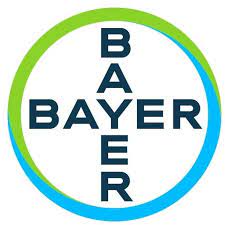WHIPPANY, N.J.– Updated thyroid sub-analysis of 29 adult and pediatric TRK fusion cancer patients, of which 28 were evaluable, treated with Vitrakvi® (larotrectinib) showed notable overall response rates (ORR) and duration of response (DoR). With longer follow-up (data cut-off July 20, 2020) the ORR in 28 evaluable patients was 71% (95% CI 51—87) for all histologies (with 2 [7%] complete responses and 18 [64%] partial responses) and the ORR was 86% (95% CI 64—97) for patients with differentiated thyroid cancer (DTC), which includes papillary and follicular thyroid cancers. Among 7 patients with anaplastic thyroid cancer (ATC), the ORR was 29% (95% CI 4—71).1 These data were presented in an oral presentation on October 2, 2021 from 12:00 – 1:00 PM EST at the virtual American Thyroid Association 2021 Annual Meeting.
Vitrakvi is approved for the treatment of adult and pediatric patients with solid tumors that have a NTRK gene fusion without a known acquired resistance mutation, are metastatic or where surgical resection is likely to result in severe morbidity, and have no satisfactory alternative treatments or that have progressed following treatment. Patients should be selected for therapy based on a Food and Drug Administration (FDA)-approved test. This indication is approved under accelerated approval based on overall response rate and duration of response. Continued approval for this indication may be contingent upon verification and description of clinical benefit in confirmatory trials.2
“Being one of the more common solid tumors, thyroid cancer – specifically papillary thyroid cancer – has one of the highest NTRK fusion prevalence rates of up to 25%,3 especially in younger patients,” said Steven G. Waguespack, M.D., Professor of Endocrine Neoplasia and Hormonal Disorders at The University of Texas MD Anderson Cancer Center. “In patients with thyroid cancer who harbor an NTRK gene fusion and who require systemic therapy for advanced disease, these data support larotrectinib’s potential as an appropriate treatment option.”
Among all patients with thyroid cancer, overall median time to response was 1.9 months (range 1.6—3.7). Kaplan-Meier estimated 24-month rate for DoR was 81% (95% CI 60—100). Two patients (7%) had Grade 3 TRAEs and no patients discontinued treatment due to adverse events. This analysis pooled data from three Vitrakvi clinical trials (NCT02122913, NCT02576431 and NCT02637687) in adult and pediatric patients with TRK fusion cancer.1
“With three years of follow-up and an expanded patient population, these results provide additional evidence to support Vitrakvi’s use in NTRK gene fusion-positive thyroid cancer,” said Scott Z. Fields, M.D., Senior Vice President and Head of Oncology Development at Bayer’s Pharmaceutical Division. “These data in patients with thyroid cancer further underscore the importance of integrating biomarker-driven oncology medicines into cancer care, so that appropriate patients can potentially benefit from a targeted treatment approach.”


